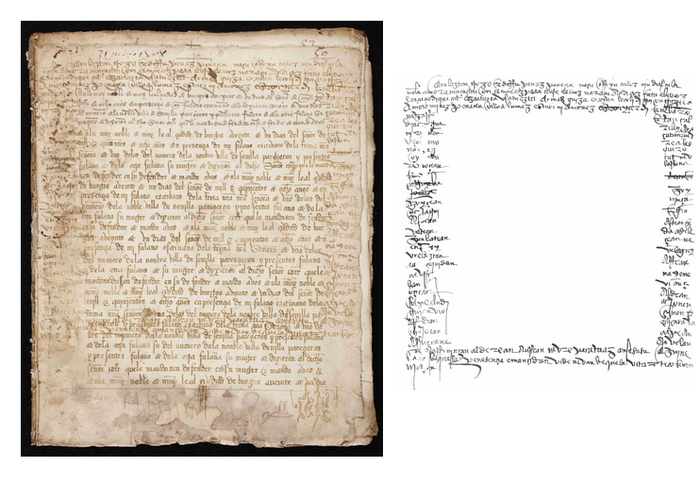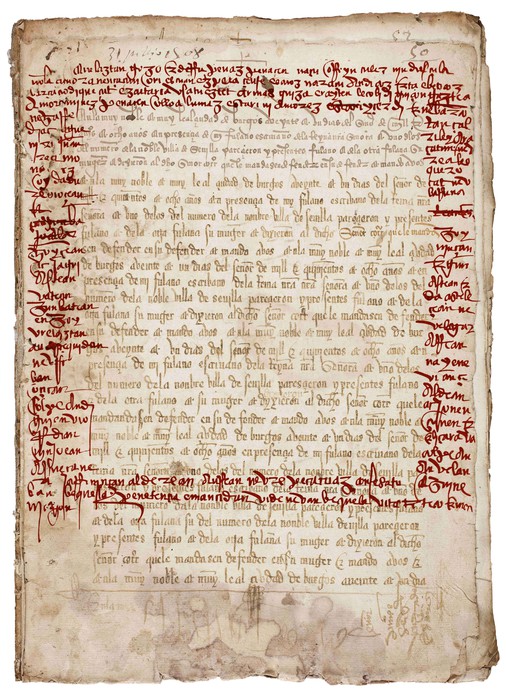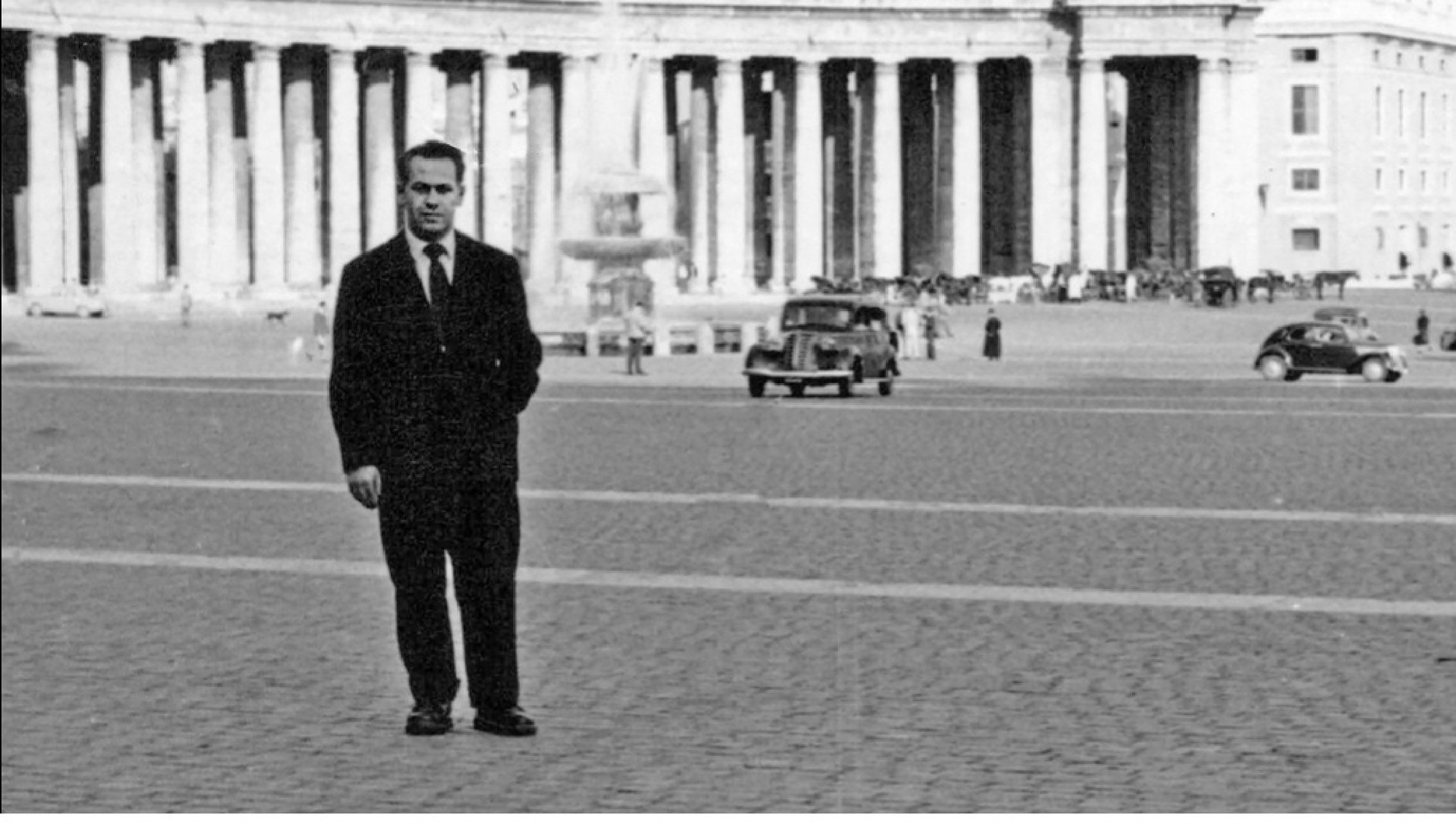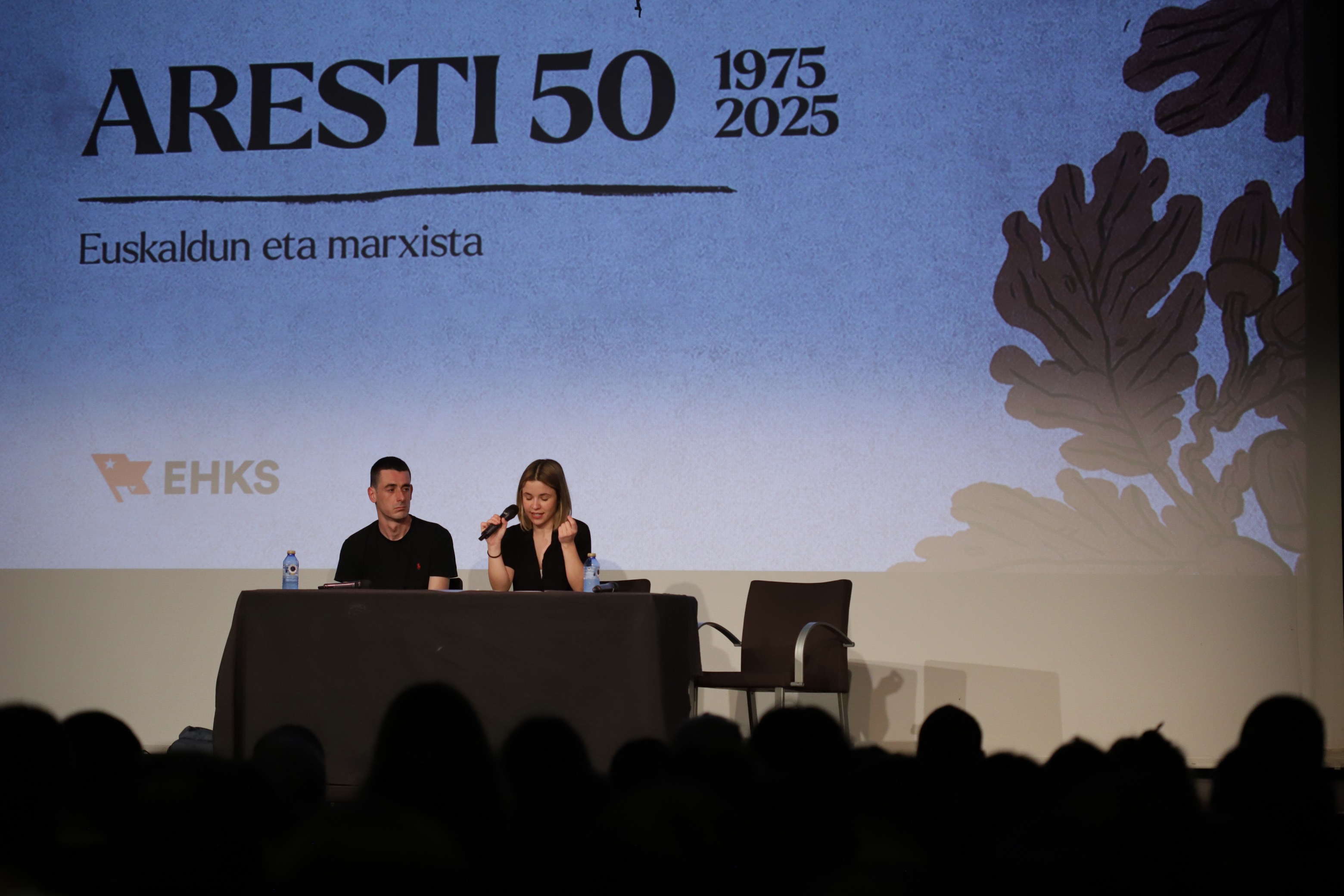They find in the Historical Archive of Gipuzkoa two 16th-century love poems written in Basque.
- The Provincial Council of Gipuzkoa has reported the finding of two love poems written in Basque in the Provincial Historical Archive of Gipuzkoa, in Oñati. They have pointed out that this is the 16th century, around 1515, and that this is the first written poem that appears in the Basque literature from the Provincial Council of Gipuzkoa.

Harkaitz MILLAN, Member of Culture of the Provincial Council of Gipuzkoa, explained that these are poems found in a notary protocol from Azkoitia. The finding has been announced at a press conference in the research class of the cultural center Koldo Mitxelena, where they explained that the preservation of the texts to date has been a "lucky carambola": "The document containing the poems was used as a cover for the quartile of a will writing and has managed to reach the present date. The writings were not in fact created in a text that had to be preserved."
Millan pointed out that they could be the oldest original poems in the Basque Country, dated around 1515, and in the Basque Country. A request by researcher Rosa Aierbe in the Historical Archive of Gipuzkoa has made it possible to locate the writings: "The presence of a few words written in Euskera about a notarial form writing attracted the attention of the researcher, who put the research into the hands of the file".


The philologist Ander Ros Cubas, a member of the research team, explained that when they first saw the document, they had "a kind of frustration": "They could not be read, but thanks to calm and cooperation we have finally managed to read the most." "The fact that the document has been used for the physical protection of notary documents and that phrases in Basque are written among the slots left by a Spanish text has added a great difficulty for interpretation, in addition to the length of the writings. The writing mold is a cursive gothic, which increases the difficulty, some letters are very similar and therefore difficult to distinguish. They have pointed out that the problem "can be read and understood" for the most part, although the text still requires "an in-depth study" in order to be able to definitively identify the gender.
A "long tradition"
At first, they explained that they believed they were letters, since "it does not have a poetic structure": "The unknown author repented, sketched out and you can see that he started with a second poem," the author explained in a statement. They point out that no older poems have been preserved than these, but that this does not mean that they are the first writings: -It's easy to see that before that there was a long tradition that didn't start from scratch. The author uses elements of the lyric then, but in a rather incoherent way." From the point of view of the Basque Country it has a "great value" and everything is interesting from the linguistic point of view: "we see that the language is fairly settled and that therefore tradition is written in Basque".
Transcription of poem
My beautiful accent...two sketches of the love poems of the Archaic Basque here, with the characteristics of the Guipuzkoan dialect. Unfinished text, with the text between the edges and the lines of writing:
My beautiful sweet kiss
I'm sorry.
In Orrey that cares for me
How I Leave
"What devil, sword?"
Follow us in your ears
Andicos and Others
Incisively Barcaçio diqueçut,
usually have a spider erayten
lecobidi guiçon joven
With boring pain
feather canvas
For my love yçu
my ship crying
çaldiac [ag]ueri
To me [j]an my love
leena [on]ezquero
oy [d]aducat is the interior of my vioca.
One day] I/Joeala
--------------------------
Goyçean goyçic jagui non one day a week, one day a week, it is the day before sunrise, in the equivocal velagay au[if] there was a neurc nay in the viá, there I touched colpe andiac, in the center of the vioçons.
When I went to church, when I had the colpe, I put on the Velaurico, confessing with my neighbor in front of me, gave me the suspensive penis, vide nevan bequela.
Vitarteco em[en] ni[a]gon
Now that everyone has become more Franciscan than the Pope, it’s worth remembering our unsurpassed classics. There was one in the 17th century, his grace was Arnaut Oienart. And since we can’t immerse ourselves in all his works, today we will praise O.ten youth in... [+]
Aurreko tertuliako galderari erantzuteko beste modu bat izan zitekeen, akaso modu inplizituago batean, bigarren solasaldi honetako izenburua. Figura literarioaz gaindi, pertsonaia zalantzan jartzeko, edo, kontrara, pertsonaiaren testuingurua ulertzeko saiakera bat. Santi... [+]
Astelehen honetan hasita, astebetez, Jon Miranderen obra izango dute aztergai: besteren artean, Mirande nor zen argitzeaz eta errepasatzeaz gain, bere figurarekin zer egin hausnartuko dute, polemikoak baitira bere hainbat adierazpen eta testu.
Martxoaren 17an hasi eta hila bukatu bitartean, Literatura Plazara jaialdia egingo da Oiartzunen. Hirugarren urtez antolatu du egitasmoa 1545 argitaletxeak, bigarrenez bi asteko formatuan. "Literaturak plaza hartzea nahi dugu, partekatzen dugun zaletasuna ageri-agerian... [+]
1984an ‘Bizitza Nola Badoan’ lehen poema liburua (Maiatz) argitaratu zuenetik hainbat poema-liburu, narrazio eta eleberri argitaratu ditu Itxaro Borda idazleak. 2024an argitaratu zuen azken lana, ‘Itzalen tektonika’ (SUSA), eta egunero zutabea idazten du... [+]





















